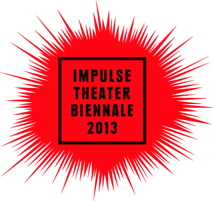
Advisory Board
For the first time Impulse has named an advisory board consisting of experts as well as from different academic fields as from arts. Çiçek Bacik, political scientist and spokesperson for the board of the Turkish Association in Berlin Brandenburg, Ellen Blumenstein, designated head curator at KW – Institute for Contemporary Art in Berlin, ethnologist Thomas Hauschild, professor for theater studies Hans-Thies Lehmann, professor of general and comparative literary studies Winfried Menninghaus and Dutch director Lotte van den Berg support the thematic development of Impulse. Unlike in past editions of Impulse, there will not be a programming jury.
BIOS
Çiçek Bacik
immigrated to Berlin from Turkey in 1980 and studied modern German literature and French philology at the Free University in Berlin and at the Sorbonne III. After her studies, she has worked in the area of migration research at the Berlin Institute for Comparative Social Research and at the European University Viadrina in Frankfurt/Oder. 2012 she received a doctorate from the political science department at Phillips University in Marburg with a thesis on “Turkish Television Channels in Germany between State, Market, and Mess”. She was a project assistant at the 7th Berlin Biennial and is currently working as project manager in the competence centre for education of the Foundation Mercator.
Ellen Blumenstein
is head curator of KW Institute for Contemporary Art in Berlin. She was a member of the curators collective THE OFFICE and founder of the Salon Populaire. Along with Klaus Biesenbach and Felix Ensslin, she produced the exhibition project “Regarding Terror: The RAF Exhibition” (2005). This was followed by the exhibitions “Between Two Deaths” (2007) at the ZKM Karlsruhe (with Felix Ensslin) as well as the Summer Academy “Agulhas Negras – On the Necessity to Discuss Social Functions of Contemporary Art” in São Paulo / Campos do Jordão, Brasil (2008). In 2011 she curated the Icelandic Pavilion at the 54th Biennial in Venice, as well as the Graduate Show at the Piet Zwart Institute in Rotterdam. For documenta 13 in Kassel she cooperated with Dora García on her Talk Show “Klau Mich!” [“Steal Me!”] (2012).
Thomas Hauschild
is professor of ethnology at the University Halle-Wittenberg. He is a fellow at the Käte Hamburger Kolleg of RUB Bochum and esearches there on religious dynamics. His research areas include: religious and aesthetic practice as cultural “reserve” in the Euro-Mediterranean region (especially southern Italy); theater-anthropology (for instance, in collaboration with Christoph Marthaler, Christoph Schlingensief, and Doris Dörrie). Hauschild is co-editor of the “Zeitschrift für Kulturwissenschaften” and of “Historische Anthropologie.” His publications include: “Inspecting Germany” (with Bernd Juergen Warneken, Berlin: LIT 2002); “Ritual und Gewalt” (Frankfurt an Main: Suhrkamp 2008). With his latest publication being „Weihnachtsmann. Die wahre Geschichte,” on Verlag S. Fischer. Hausschild is a full member of Heidelberger Akademie der Wissenschaften.
Hans-Thies Lehmann
was professor for theater studies at the Johann Wolfgang Goethe University Frankfurt am Main from 1988 until his retirement in 2010. His publications include “Bertolt Brechts ‘Hauspostille’ – Text und kollektives Lesen” (with Helmut Lethen, 1978); “Theater und Mythos. Die Konstitution des Subjekts im Diskurs der antiken Tragödie” (1991); “Postdramatisches Theater” (1999); “Heiner Müller Handbuch” (co-edited with Patrick Primavesi, 2003). After completing his doctorate, he was guest professor at the University of Amsterdam and assistant professor at the Institute for Applied Theater Studies in Gießen. As a university professor in theater studies at the Johann Wolfgang Goethe University in Frankfurt, he played an important role in building up the program for theater, film, and media studies, as well as in founding the program for dramaturgy at the Hessian Theater Academy. Hans-Thies Lehmann lives in Berlin.
Winfried Menninghaus
is founding director of the Max-Planck institute for empiric esthetics in Frankfurt/Main. He served as professor of general and comparative literary studies at the FU Berlin, held guest professorships at the universities of Jerusalem, Berkeley, Yale, Princeton, Rice, and the EHESS Paris. At the beginning of the 1980s, he worked as an editor at Suhrkamp Verlag. Since 2002, Menninghaus is a full member of the Berlin-Brandenburg Academy of Sciences. The focal points of his work are ancient rhetoric and poetics; European literature since 1750; philosophical, evolutionary, and empirical-psychological aesthetics. Recent publications include the monographs “Hälfte des Lebens. Versuch über Hölderlins Poetik” (2005); “Kunst als ‘Beförderung des Lebens’. Perspektiven transzendentaler und evolutionärer Ästhetik” (2008) and “Wozu Kunst? Ästhetik nach Darwin” (2011).
Lotte van den Berg
is a Dutch director who has become one of the most important protagonists of her generation, making theatre that is radically entrenched in its social setting. Her productions include “Het Blauwe uur”, “Gerucht”, “Braakland” and “Les Specateurs”. Many of them are about looking, about real-life experiences and, often, about the difficulty of understanding. She gave up her position as a director at Toneelhuis Antwerp in Belgium to start OMSK, her own company in the small city of Dordrecht in the Netherlands, where she began by involving her immediate surroundings and at the same time, working for several months in Kinshasa, Congo. Now, Lotte is about to reinvent herself again in Utrecht as one of the resident artists at Huis aan de Werf. Her most recent work “Pleinvrees” will be created in the open: “‘Pleinvrees’ [agrophobia] will be performed on a big square in the centre of town. There’s no set, no lighting design, no amplified sound and no seating. Pleinvrees is a happening, a remarkable encounter between people.” lottevandenberg.nu






